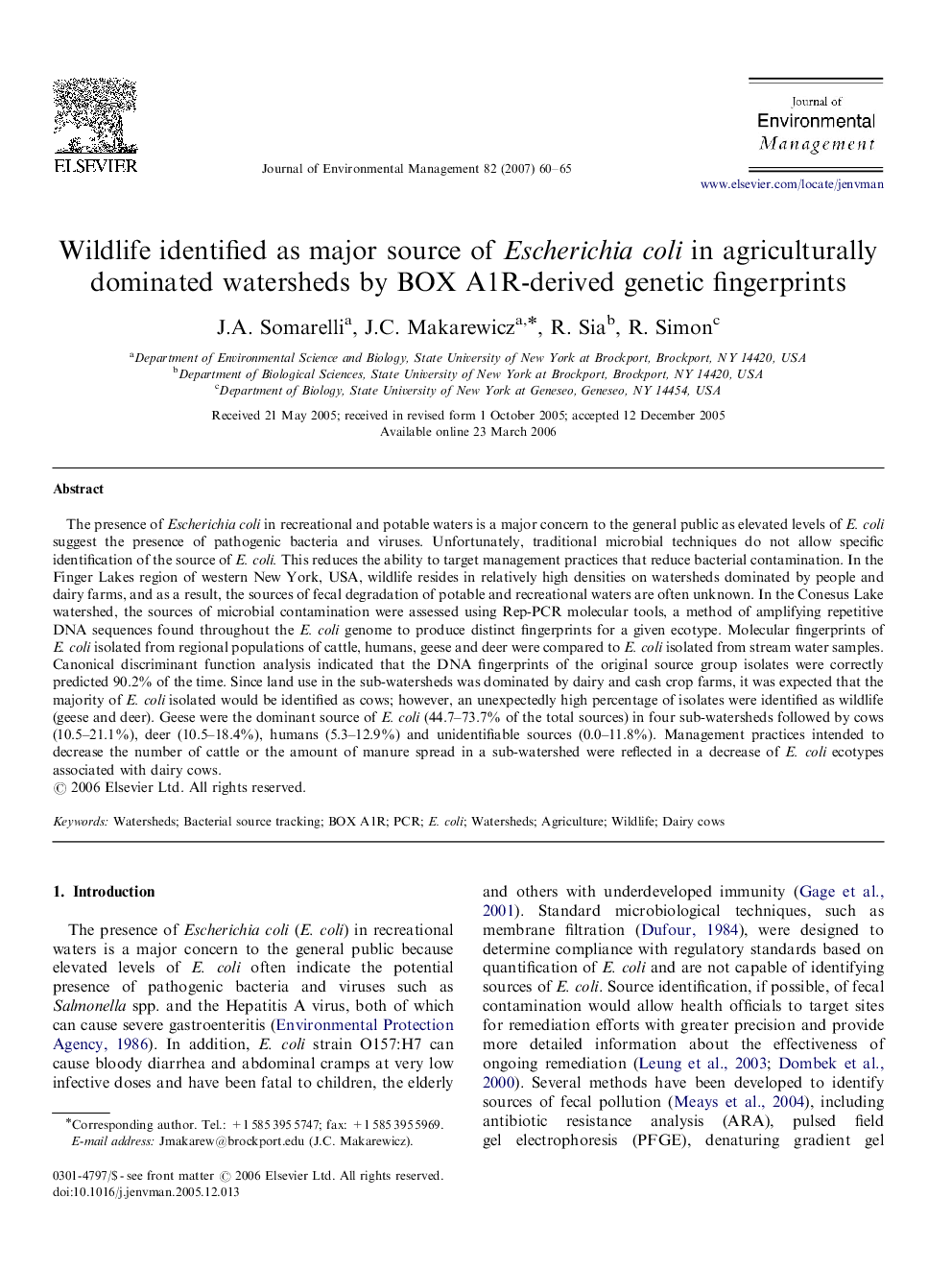| Article ID | Journal | Published Year | Pages | File Type |
|---|---|---|---|---|
| 1057923 | Journal of Environmental Management | 2007 | 6 Pages |
The presence of Escherichia coli in recreational and potable waters is a major concern to the general public as elevated levels of E. coli suggest the presence of pathogenic bacteria and viruses. Unfortunately, traditional microbial techniques do not allow specific identification of the source of E. coli. This reduces the ability to target management practices that reduce bacterial contamination. In the Finger Lakes region of western New York, USA, wildlife resides in relatively high densities on watersheds dominated by people and dairy farms, and as a result, the sources of fecal degradation of potable and recreational waters are often unknown. In the Conesus Lake watershed, the sources of microbial contamination were assessed using Rep-PCR molecular tools, a method of amplifying repetitive DNA sequences found throughout the E. coli genome to produce distinct fingerprints for a given ecotype. Molecular fingerprints of E. coli isolated from regional populations of cattle, humans, geese and deer were compared to E. coli isolated from stream water samples. Canonical discriminant function analysis indicated that the DNA fingerprints of the original source group isolates were correctly predicted 90.2% of the time. Since land use in the sub-watersheds was dominated by dairy and cash crop farms, it was expected that the majority of E. coli isolated would be identified as cows; however, an unexpectedly high percentage of isolates were identified as wildlife (geese and deer). Geese were the dominant source of E. coli (44.7–73.7% of the total sources) in four sub-watersheds followed by cows (10.5–21.1%), deer (10.5–18.4%), humans (5.3–12.9%) and unidentifiable sources (0.0–11.8%). Management practices intended to decrease the number of cattle or the amount of manure spread in a sub-watershed were reflected in a decrease of E. coli ecotypes associated with dairy cows.
